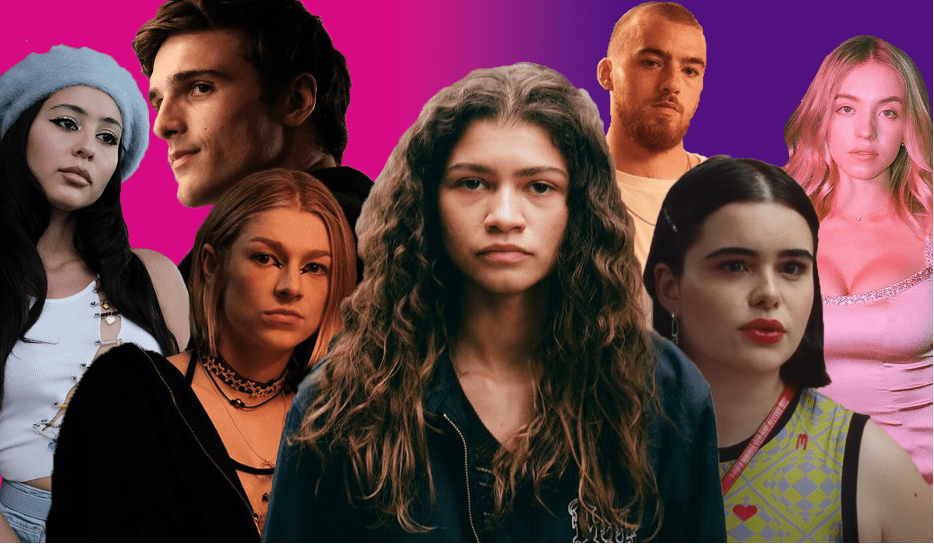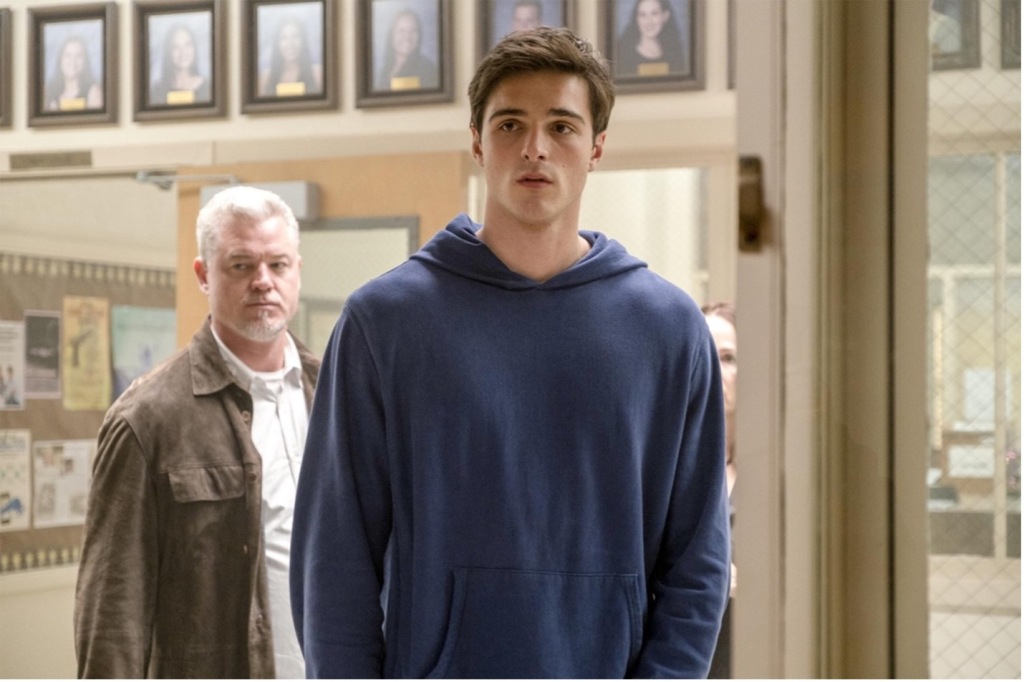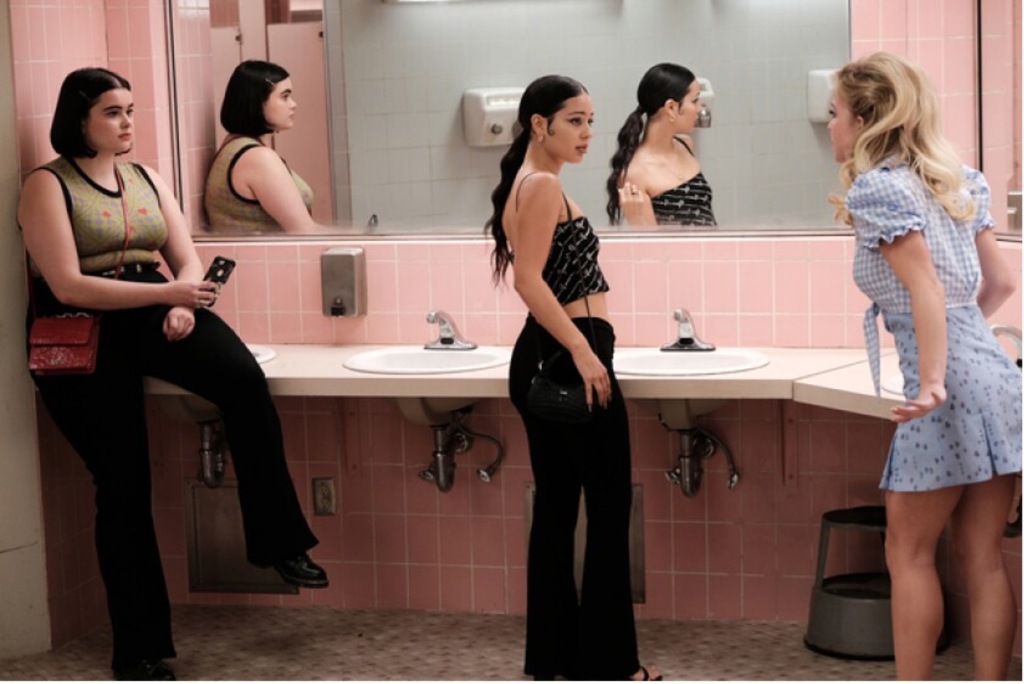
By Eve Reekie, 06/04/2021
This unconventional ‘teen drama’ is seen by many as a piece of artwork. But ask yourself as an adult, teen or elder, can you relate to any one single character’s experiences. To quote Henry Wong in the Guardian “If school days are the happiest of our lives, I’m worried for the Euphoria teens.” If you sat there through season two and thought taking amphetamines and carrying a gun, was a classic teenage thing to do. I’m worried for teenagers nowadays.
Before writing this, I re-watched the show for five days straight and would now call myself a euphoria cultist. The show’s first season absolutely captivated me with its glittery psychodrama. However, can I sit here and say I related to any of the characters as a 19-year-old, no. And did it leave me with slight trauma after each episode, yes.
Many avid fans on Twitter are calling Euphoria “woke”, defined as, alert to racial prejudice and discrimination. Fans say this because it doesn’t shy away from the nitty and gritty aspects of teenage life. In fact, I personally applaud the show for its ambition and the range of issues they’ve chosen to portray.
The character Jules is coveted as an excellent representation of the transgender community. Actor Hunter Schafer has said she combined her own experiences into the character. Similarly with Rue, who is written from a place of truth as director, Sam Levinson, said in an Entertainment interview, he was a “drug addict for many years.” Making the character’s depiction of rehabilitation extremely accurate. And even though Cal, the father of Nate Jacobs, ended up being a twisted sex offender. His son and him did offer a realistically scary look into toxic masculinity and the struggles of coming out.
However, since the release of season two in 2021, the show spiked even more controversy in pop culture. With news outlets calling it “relentlessly explicit” (The Guardian) and “Pointlessly Gratuitous” (Esquire). In the first episode of season,2 we see a 14-year-old murder a drug dealer by hammering him in the head, A 19-year-old smash a bottle into the face of a toxic jock and Rue doing lines of Xanax in the bathroom. Not to mention a 17-year-old having dirty bathroom sex. The dramatization of teen lives isn’t anything new in popular culture but it’s worryingly straying further and further from reality.

For years teen dramas have been using adult actors, like in Grease (1978) and Rebel Without a Cause (1955). This is because they’re allowed to work longer hours. But the reflection of teenage lives from an adult’s perception is wildly different from real life. Adults will have a perception of their teenage years being the most exciting points in their lives, which it probably was. So, it makes sense that when it comes to tv dramas they overdo it with the crazy experiences they have.
I think director Sam Levinson is a case of this, he says “I just wrote myself as a teenager.” Essentially from the point of view of a drug addict just like the narrator of the show, Rue. This creates a fantasy drugged-up version of teenage experiences. Which can harm the young viewers of the show.
The target audience of Euphoria Levinson says is older than “17 years of age.” That demographic is notoriously known for being impressionable. When I watched the show for the first time in 2019 it made me feel like my teen life was mundane and boring. Where were all these huge parties, drugs and drama in my life? It brought up some insecurities about my teenage experiences. Especially during lockdown when teenagers couldn’t even leave their homes.
Equally the aesthetic of the show took over its realism. As said in an article by the Stylist. Actors Hunter Schafer (Jules) and Barbie Ferreira (Kat), both wore brands such as “Miu Miu and Orseund Iris to vintage Jean Paul Gaultier and Roberto Cavalli” in the show. This means Jules was most likely turning up to a dodgy motel car park at 1 am in a £1,000 outfit.
The beauty standards the show upholds is a damaging interpretation of teenage reality. I can assure you most teenagers at my university do not have perfect bodies, nor do they wear that much makeup or turn up in full designer outfits.
Euphoria has been criticised for its explicit nudity and over-sexualization of the girls in the show. The Hollywood Reporter tallied there to be “In one episode alone, close to 30 penises flash onscreen.” And if this wasn’t bad enough Cassie played by Sydney Sweeny, who’s supposed to be 17, has multiple nude shots, sex scenes and boys harassing her for sex.
The actor had to ask director Sam Levinson to cut some of her scenes. She said to People magazine that she “didn’t feel like her character would be doing it.” And she would tell Sam “I don’t really think it’s necessary here.” And he was like “Ok we don’t need it.” The actor did add that she never felt that Sam pushed it with her.
The representations of these fully matured women having sex in literally every episode will inevitably damage the perception of sex for teens watching. In a The Swaddle article they call the show out saying Euphoria was walking a thin line, “between subverting the male gaze and the moral panic over teen girls’ sexuality on the one hand, and actively participating in these on the other hand.” The reality for teenagers isn’t going to be anywhere near the glamorised pornographic sex scenes Levinson portrayed in the show.
I mean my friends and I still laughed when someone said the word penis up until I was 18. Let alone straddling a carousel horse trying to orgasm on MDMA. And yeah, that happens in the show.
In this postmodern world, Euphoria works as a tool within popular culture to create unrealistic impressions of high schoolers.

To understand how these representations can be harmful you must understand cultivation. George Gerbner’s theory of cultivation imposes that exposure to repeated patterns of representation over long periods can shape and influence how people perceive the world around them. If I was to say Euphoria is a “woke” representation of teenagers, in which there’s inclusion of real-life traumas, it must be acknowledged that at the same time it is exposing sensitive subjects to impressionable youths.
I conducted an interview with three students from Oxford Brookes University, between the ages of 20-22, to ask them if they think the show is an accurate representation of their experiences.
Do you think Euphoria perpetuates beauty standards and overall sells fake representations of teenagers?
Lauren Harrington (20): Honestly, I’m such a fan of the show, and I do agree that some beauty standards are sold to its audience. But what teen drama nowadays doesn’t? Look at Riverdale and scream queens. I think they are a lot worse than Euphoria when it comes to beauty standards. At least in the show, they explore the setbacks that come with trying to be this perfect, like dealing with insecurities and anxiety.
Whilst watching the show have you felt the representations of teenagers resemble any form of reality for you and your life?
Gab Mosto (22): No, (Laughs) not at all. I think that the hype of Euphoria’s shock value took over its reality, especially in season two. For half of it, I was sitting there wondering what was going on? On the surface, I see something familiar but the more I watched it the less I thought, oh this is a bunch of high school kids.
“What I want to see is a character that’s not messed up, just a regular guy like me, that can add some normal.”
Santino Smaldone (20): I wish. If I could be a Euphoria teen I would probably go nuts. All these insane girls and sick glittery outfits, I would be living my best life. So, to answer your question I would have to so no because, I mean. I just said I wished to be like them, meaning that their world is a fantasy.
Let’s talk about this! Contact me on Twitter @eve_reekie and for any reference list wanted.
